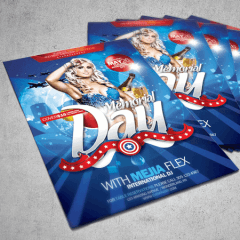The Ethics of Advertising
Because Deceit Isn’t a Great Look, Buddy
Advertising and mass communication—powerful tools that shape our perceptions, influence our choices, and, let’s be honest, occasionally make us buy a third air fryer we didn’t need. But with great power comes great responsibility (thanks, Spider-Man). When wielded without ethical oversight, these tools can easily veer into deceptive practices, privacy invasions, or even exploitation.
So, how do we strike a balance between creative persuasion and ethical responsibility? In this installment of our series, we’ll tackle the ethical considerations of advertising and mass communication, explore common pitfalls, and discuss how industry standards and regulations aim to keep things on the up and up.
The Ethical Tightrope of Advertising
Ethics in advertising isn’t just about avoiding outright lies (though that’s a good start). It’s about balancing persuasion with fairness, transparency, and respect for the audience. Let’s break down a few of the most pressing concerns:
- Deceptive Practices:
Ever seen a “miracle” cream that promises eternal youth or a weight-loss pill that guarantees six-pack abs by tomorrow? These kinds of exaggerated claims aren’t just misleading—they’re unethical. Advertisers must provide evidence for their claims and avoid creating false expectations. - Privacy Invasion:
With the rise of data-driven marketing, privacy has become a hot-button issue. Tracking cookies, geolocation, and personalized ads are powerful tools, but when used without consent or transparency, they can feel like a digital intrusion. - Exploitation of Vulnerable Audiences:
Children, seniors, and other vulnerable groups are often targeted with ads that manipulate their emotions or exploit their lack of experience. Ethical advertising prioritizes protecting these audiences from undue influence. - Cultural Sensitivity and Stereotyping:
Ads that perpetuate stereotypes or ignore cultural nuances can alienate audiences and cause significant harm. Responsible communication requires inclusivity and a respect for diversity.
Regulating Ethical Standards: Who’s Watching?
Ethics in advertising isn’t just a matter of personal conscience; it’s governed by industry standards and regulations. Organizations like the American Advertising Federation (AAF) and the Association of National Advertisers (ANA) offer guidelines to promote transparency, accuracy, and fairness.
Then there’s the Federal Trade Commission (FTC)—the enforcer of truth in advertising. With their no-nonsense approach, the FTC ensures that ads:
- Don’t make claims without evidence.
- Clearly disclose sponsorships and partnerships.
- Respect consumer privacy and data usage rights.
While these standards set the bar, enforcement often relies on a mix of self-regulation, watchdog organizations, and consumer advocacy.
Ethics in Mass Communication
Mass communication, including news media and public relations, faces similar ethical challenges. These include:
- Misinformation: Deliberate or accidental dissemination of false information erodes trust and can have wide-reaching consequences.
- Bias and Objectivity: News outlets have a responsibility to provide balanced reporting, free from undue influence by advertisers or sponsors.
- Privacy Concerns: Covering sensitive topics or private individuals requires careful consideration to avoid harm or exploitation.
Scholarly discussions on media ethics emphasize the importance of transparency, accountability, and prioritizing the public’s right to know.
Why Ethics Matter More Than Ever
In an era of instant communication and digital dominance, unethical practices can backfire spectacularly. Social media amplifies consumer voices, making it easier than ever for audiences to call out brands for misleading ads, privacy breaches, or tone-deaf messaging.
Brands that prioritize ethics not only avoid regulatory penalties but also build trust and loyalty. In a world where authenticity is currency, ethical advertising is more than a moral obligation—it’s a strategic advantage.
Good Ethics, Good Vibes
A Call to Responsibility
Advertising and mass communication wield immense power to shape opinions, drive behavior, and even influence culture. With that power comes a responsibility to communicate honestly, respect privacy, and uphold the values of fairness and inclusivity.
As we navigate the ever-evolving landscape of media and marketing, the challenge remains: how do we innovate and persuade without crossing ethical boundaries? The answer lies in holding ourselves—and each other—accountable to the highest standards of integrity.
Because at the end of the day, great advertising doesn’t just sell—it builds trust. And that’s a legacy worth striving for.
-

Standard Business Cards
$22.00 – $94.00Price range: $22.00 through $94.00Select options This product has multiple variants. The options may be chosen on the product page -

Event Posters
$6.00 – $30.00Price range: $6.00 through $30.00Select options This product has multiple variants. The options may be chosen on the product page
-

Standard Postcards
$40.00 – $535.00Price range: $40.00 through $535.00Select options This product has multiple variants. The options may be chosen on the product page -

Round Corner Business Cards
$26.25 – $73.50Price range: $26.25 through $73.50Select options This product has multiple variants. The options may be chosen on the product page
-

Plastic Business Cards
$49.00 – $172.50Price range: $49.00 through $172.50Select options This product has multiple variants. The options may be chosen on the product page -

Folded Business Cards
$110.00 – $155.00Price range: $110.00 through $155.00Select options This product has multiple variants. The options may be chosen on the product page
-

Rack Cards
$69.00 – $84.00Price range: $69.00 through $84.00Select options This product has multiple variants. The options may be chosen on the product page
-

Brochures
$130.00 – $680.00Price range: $130.00 through $680.00 Sale!Select options This product has multiple variants. The options may be chosen on the product page



Holiday Marketing Tips: Start Early, Win Big
AI Signal Strategy
We Are the New Web Spinners